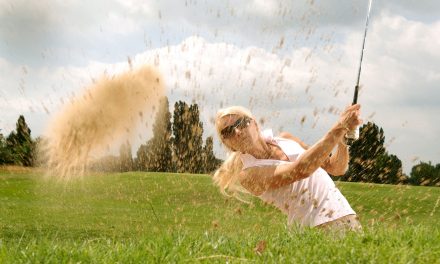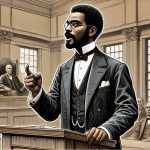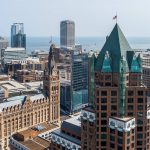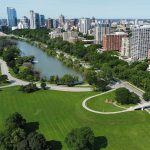
South Korea’s decision to launch a Digital Nomad Visa is part of a broader strategy to capitalize on the global shift towards remote work initiated by the COVID-19 pandemic. As a city known for its thriving industries in technology, healthcare, and creative services, Milwaukee is home to a growing population of remote workers.
As Wisconsin companies increasingly adopt flexible work arrangements, employees are no longer tethered to a specific location. Recognizing this post-COVID trend, South Korea aims to attract skilled professionals who can contribute to its economy while enjoying the country’s dynamic environment.
The Digital Nomad Visa, launched at the start of 2024, allows eligible foreign nationals to live in South Korea for up to two years, provided they meet certain income and professional criteria. For Milwaukee professionals, the visa offers an unparalleled opportunity to expand their horizons. The chance to live in a tech-savvy, culturally rich country like South Korea while continuing to work for a U.S.-based company.
Young software developers, working remotely for a Milwaukee-based tech startup, could utilize South Korea’s advanced technological infrastructure, including one of the fastest internet networks in the world. The experience of living in a global city like Seoul, surrounded by innovation and cutting-edge technology, could provide invaluable insights and inspiration, enhancing their professional development.
The Digital Nomad Visa was designed to accommodate the needs of remote workers employed by foreign companies. Applicants must be at least 18 years old, with a minimum of one year of experience in their current field.
The financial requirement is significant, with a required annual income of approximately $65,860, reflecting twice the per capita income of South Korea. The income threshold ensures that visa holders are financially self-sufficient during their stay.
Applicants must also demonstrate a clean criminal record and provide proof of private health insurance with coverage of at least $75,000. The insurance must be comprehensive enough to cover medical treatment and repatriation, ensuring that digital nomads are well-protected during their stay.
The visa allows for an initial stay of one year, extendable by an additional year, enabling digital nomads to reside in South Korea for up to two years. It is a significant improvement over the typical 90-day limit of tourist visas, offering professionals ample time to immerse themselves in the local culture while fulfilling their work commitments.
Applications must be submitted through a South Korean embassy or consulate in the applicant’s home country. The process requires detailed documentation, including proof of income, employment verification, a criminal record check, and health insurance.
The rigorous application process reflects South Korea’s commitment to attracting high-caliber professionals who can contribute positively to the local economy without competing for jobs with local residents.
One of the standout features of South Korea’s Digital Nomad Visa is its accommodation of family members. Spouses and children under 18 can accompany the visa holder, making it an attractive option for families. The inclusion sets South Korea apart from some other countries offering digital nomad visas, which often have stricter regulations regarding dependents.
It is important to note that while the Digital Nomad Visa allows remote work for foreign companies, it strictly prohibits employment with South Korean businesses or engagement in any local profit-making activities. The restriction ensures that the visa does not impact the local job market, aligning with South Korea’s broader economic policies.
For example, a graphic artist working remotely for a Milwaukee design studio can legally reside and work from South Korea under the visa. However, if the individual wishes to take up a project for a Korean company, they would need to apply for a different visa type that permits local employment.
For a young professional from Milwaukee, living in South Korea for a year or two while employed offers a favorable lifestyle, with excellent public transportation, a high standard of healthcare, and a relatively low crime rate.
The country’s emphasis on work-life balance also means that remote workers can enjoy their leisure time, exploring everything from hiking trails in from mountains around Seoul to beaches in Busan. By living and working in South Korea, Milwaukee professionals can gain a deeper understanding of Asian markets, build a global network, and enhance their resumes with international experience.
That would also benefit Milwaukee’s local economy. Workers would bring back not only professional skills but also a broader perspective on global business practices and cultural awareness. As the professionals reintegrate into the city’s workforce, they would introduce new ideas, skills, and connections that could also drive innovation and economic growth.
However, it is important to consider the challenges that come with living abroad. Language barriers, cultural differences, and the complexities of South Korea’s culture are potential hurdles for some of Milwaukee’s digital nomads.
The introduction of the Digital Nomad Visa is part of South Korea’s broader strategy to position itself as a global hub for innovation and creativity. For Milwaukee’s young professionals, participating in the program could have long-term benefits, both personally and professionally. By offering a gateway to global careers, workers would stay connected to Milwaukee while expanding their horizons and making a global impact.
MI Staff (Korea)
Lana Iva, Sanga Park, MixMatch Studio, InstaPhotos, and Shyn Tartanya (via Shutterstock)
- Exploring Korea: Stories from Milwaukee to the DMZ and across a divided peninsula
- A pawn of history: How the Great Power struggle to control Korea set the stage for its civil war
- Names for Korea: The evolution of English words used for its identity from Gojoseon to Daehan Minguk
- SeonJoo So Oh: Living her dream of creating a "folded paper" bridge between Milwaukee and Korean culture
- A Cultural Bridge: Why Milwaukee needs to invest in a Museum that celebrates Korean art and history
- Korean diplomat joins Milwaukee's Korean American community in celebration of 79th Liberation Day
- John T. Chisholm: Standing guard along the volatile Korean DMZ at the end of the Cold War
- Most Dangerous Game: The golf course where U.S. soldiers play surrounded by North Korean snipers
- Triumph and Tragedy: How the 1988 Seoul Olympics became a battleground for Cold War politics
- Dan Odya: The challenges of serving at the Korean Demilitarized Zone during the Vietnam War
- The Korean Demilitarized Zone: A border between peace and war that also cuts across hearts and history
- The Korean DMZ Conflict: A forgotten "Second Chapter" of America's "Forgotten War"
- Dick Cavalco: A life shaped by service but also silence for 65 years about the Korean War
- Overshadowed by conflict: Why the Korean War still struggles for recognition and remembrance
- Wisconsin's Korean War Memorial stands as a timeless tribute to a generation of "forgotten" veterans
- Glenn Dohrmann: The extraordinary journey from an orphaned farm boy to a highly decorated hero
- The fight for Hill 266: Glenn Dohrmann recalls one of the Korean War's most fierce battles
- Frozen in time: Rare photos from a side of the Korean War that most families in Milwaukee never saw
- Jessica Boling: The emotional journey from an American adoption to reclaiming her Korean identity
- A deportation story: When South Korea was forced to confront its adoption industry's history of abuse
- South Korea faces severe population decline amid growing burdens on marriage and parenthood
- Emma Daisy Gertel: Why finding comfort with the "in-between space" as a Korean adoptee is a superpower
- The Soul of Seoul: A photographic look at the dynamic streets and urban layers of a megacity
- The Creation of Hangul: A linguistic masterpiece designed by King Sejong to increase Korean literacy
- Rick Wood: Veteran Milwaukee photojournalist reflects on his rare trip to reclusive North Korea
- Dynastic Rule: Personality cult of Kim Jong Un expands as North Koreans wear his pins to show total loyalty
- South Korea formalizes nuclear deterrent strategy with U.S. as North Korea aims to boost atomic arsenal
- Tea with Jin: A rare conversation with a North Korean defector living a happier life in Seoul
- Journalism and Statecraft: Why it is complicated for foreign press to interview a North Korean defector
- Inside North Korea’s Isolation: A decade of images show rare views of life around Pyongyang
- Karyn Althoff Roelke: How Honor Flights remind Korean War veterans that they are not forgotten
- Letters from North Korea: How Milwaukee County Historical Society preserves stories from war veterans
- A Cold War Secret: Graves discovered of Russian pilots who flew MiG jets for North Korea during Korean War
- Heechang Kang: How a Korean American pastor balances tradition and integration at church
- Faith and Heritage: A Pew Research Center's perspective on Korean American Christians in Milwaukee
- Landmark legal verdict by South Korea's top court opens the door to some rights for same-sex couples
- Kenny Yoo: How the adversities of dyslexia and the war in Afghanistan fueled his success as a photojournalist
- Walking between two worlds: The complex dynamics of code-switching among Korean Americans
- A look back at Kamala Harris in South Korea as U.S. looks ahead to more provocations by North Korea
- Jason S. Yi: Feeling at peace with the duality of being both an American and a Korean in Milwaukee
- The Zainichi experience: Second season of “Pachinko” examines the hardships of ethnic Koreans in Japan
- Shadows of History: South Korea's lingering struggle for justice over "Comfort Women"
- Christopher Michael Doll: An unexpected life in South Korea and its cross-cultural intersections
- Korea in 1895: How UW-Milwaukee's AGSL protects the historic treasures of Kim Jeong-ho and George C. Foulk
- "Ink. Brush. Paper." Exhibit: Korean Sumukhwa art highlights women’s empowerment in Milwaukee
- Christopher Wing: The cultural bonds between Milwaukee and Changwon built by brewing beer
- Halloween Crowd Crush: A solemn remembrance of the Itaewon tragedy after two years of mourning
- Forgotten Victims: How panic and paranoia led to a massacre of refugees at the No Gun Ri Bridge
- Kyoung Ae Cho: How embracing Korean heritage and uniting cultures started with her own name
- Complexities of Identity: When being from North Korea does not mean being North Korean
- A fragile peace: Tensions simmer at DMZ as North Korean soldiers cross into the South multiple times
- Byung-Il Choi: A lifelong dedication to medicine began with the kindness of U.S. soldiers to a child of war
- Restoring Harmony: South Korea's long search to reclaim its identity from Japanese occupation
- Sado gold mine gains UNESCO status after Tokyo pledges to exhibit WWII trauma of Korean laborers
- The Heartbeat of K-Pop: How Tina Melk's passion for Korean music inspired a utopia for others to share
- K-pop Revolution: The Korean cultural phenomenon that captivated a growing audience in Milwaukee
- Artifacts from BTS and LE SSERAFIM featured at Grammy Museum exhibit put K-pop fashion in the spotlight
- Hyunjoo Han: The unconventional path from a Korean village to Milwaukee’s multicultural landscape
- The Battle of Restraint: How nuclear weapons almost redefined warfare on the Korean peninsula
- Rejection of peace: Why North Korea's increasing hostility to the South was inevitable
- WonWoo Chung: Navigating life, faith, and identity between cultures in Milwaukee and Seoul
- Korean Landmarks: A visual tour of heritage sites from the Silla and Joseon Dynasties
- South Korea’s Digital Nomad Visa offers a global gateway for Milwaukee’s young professionals
- Forgotten Gando: Why the autonomous Korean territory within China remains a footnote in history
- A game of maps: How China prepared to steal Korean history to prevent reunification
- From Taiwan to Korea: When Mao Zedong shifted China’s priority amid Soviet and American pressures
- Hoyoon Min: Putting his future on hold in Milwaukee to serve in his homeland's military
- A long journey home: Robert P. Raess laid to rest in Wisconsin after being MIA in Korean War for 70 years
- Existential threats: A cost of living in Seoul comes with being in range of North Korea's artillery
- Jinseon Kim: A Seoulite's creative adventure recording the city’s legacy and allure through art
- A subway journey: Exploring Euljiro in illustrations and by foot on Line 2 with artist Jinseon Kim
- Seoul Searching: Revisiting the first film to explore the experiences of Korean adoptees and diaspora


















